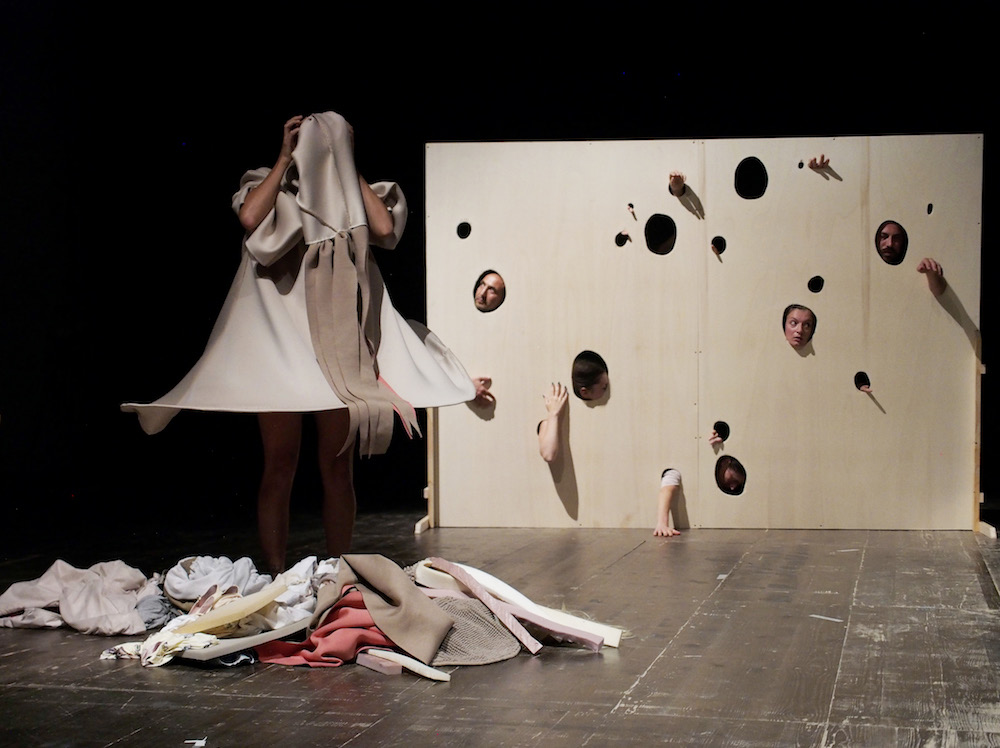
Madison Bycroft, Mollusc theory: Soft Bodies, 2017 (production still)
It all begins with a solitary act of recognition and mourning. Preparation of the dead, a white shroud, the living human body offered up in silent acknowledgement for the contempt she was made to endure as part of her death to serve as culinary delicacy. A melting of bodies as re-passage into remembrance that recovers dignity which was taken by marking her a consumable thing; a requiem for that octopus that restores her to someone who lived, can die, is dead and who’s death is to be mourned.
Madison Bycroft’s videos reflect a long-term interest in octopuses, who make models for alternative ways of understanding or ordering the world. But there is no retrospective here. the videos describe an unfolding stream of cephalopod-empathy, of being and becoming with their otherness. It is said, that looking into the eyes of an octopus we recognize another soul looking back at us. But this soul isn’t easily intimidated, or disclosed! the disguise of a mimic octopus or the impersonations performed by some cuttlefish refuse systems of human legibility. Maybe this is what has inspired their stylization into monsters in the past, and feeds our fascination with them today, where our self- image as pinnacle of creation is tainted by the loss of control over nature and we search for new security. Who then can we become when we empathize without domesticating or corralling difference into something that is fixed and easily digestible? When we move closer to the octopus, instead of subordinating octopus-existence to human, modern, Western expectations towards the world, both human and animal? Being affected by an environment whilst actively reproducing it, both expressing it, and being expressed by it, escaping severed exclusion where this is this and that is that, the octopuses’ unknowability becomes a proposition for engaging empathy without requiring understanding.